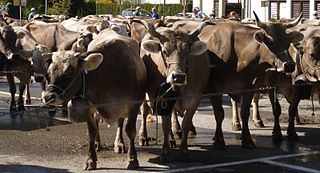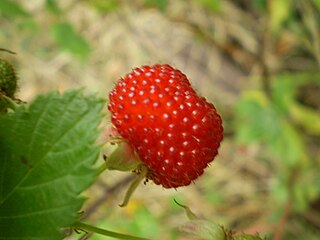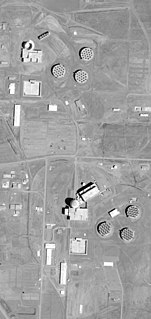
Horticulture is the science, art, and practice of cultivating plants, flowers, fruits, vegetables, spices, and medicinal and aromatic crops with the purpose of decoration, beauty, ornament, and fancy.

An introduced species, alien species, exotic species, adventive species, immigrant species, foreign species, non-indigenous species, or non-native species is a species living outside its native distributional range, but which has arrived there by human activity, directly or indirectly, and either deliberately or accidentally. Non-native species can have various effects on the local ecosystem. Introduced species that become established and spread beyond the place of introduction are considered "naturalized". The process of human-caused introduction is distinguished from biological colonization, in which species spread to new areas through "natural" (non-human) means such as storms and rafting.

The Xerces Society is a non-profit environmental organization that focuses on the conservation of invertebrates considered to be essential to biological diversity and ecosystem health. The name is in honor of the extinct California butterfly, the Xerces blue.

Columbia Generating Station is a nuclear commercial energy facility located 10 miles (16 km) north of Richland, Washington. It is owned and operated by Energy Northwest, a Washington state, not-for-profit joint operating agency. Licensed by the Nuclear Regulatory Commission in 1983, Columbia first produced electricity in May 1984, and entered commercial operation in December 1984.

Clark Botanic Garden is a 12-acre (4.9 ha) botanical garden located in Albertson, New York, on Long Island.
The Utah Native Plant Society (UNPS) is a non-profit organization dedicated to the appreciation, preservation, conservation and responsible use of the native plants and plant communities found in the state of Utah and the Intermountain West. Its goal is to foster public recognition of the spectacularly diverse flora of the state.
Gary Paul Nabhan is an Agricultural Ecologist, Ethnobotanist, Ecumenical Franciscan Brother, and author whose work has focused primarily on the plants and cultures of the desert Southwest. He is considered a pioneer in the local food movement and the heirloom seed saving movement.
American Forests is a 501(c)(3) non-profit conservation organization, established in 1875, and dedicated to protecting and restoring healthy forest ecosystems. The current headquarters are in Washington, D.C.

The Chattahoochee Nature Center is a private, non-profit environmental education facility in Roswell, Georgia. Located on 127 acres (0.51 km2) adjacent to the Chattahoochee River, the nature center focuses on educational outreach through the use of live flora and fauna. The mission of the Chattahoochee Nature Center is to connect people to nature.

Allium unifolium, the one-leaf onion or American garlic, is a North American species of wild onion. It is native to the coastal mountain ranges of California, Oregon, and Baja California. It grows on clay soils including serpentine, at elevations up to 1100 m.
The Canadian Paper Money Society (CPMS) is a non-profit numismatic organization for collectors of Canadian paper money, including government and private bank issues, municipal scrip, stocks, bonds, and other forms of payment. It has members throughout Canada, the United States and in other countries.
Genetic pollution is a controversial term for uncontrolled gene flow into wild populations. It is defined as "the dispersal of contaminated altered genes from genetically engineered organisms to natural organisms, esp. by cross-pollination", but has come to be used in some broader ways. It is related to the population genetics concept of gene flow, and genetic rescue, which is genetic material intentionally introduced to increase the fitness of a population. It is called genetic pollution when it negatively impacts on the fitness of a population, such as through outbreeding depression and the introduction of unwanted phenotypes which can lead to extinction.

Grevillea concinna, the red combs or elegant grevillea, is a shrub which is endemic to Western Australia. It grows up to 1.6 metres in height and has linear leaves.

Rubus probus, or Atherton raspberry, is a wild tropical raspberry species native to Papua New Guinea and Australia.

Grevillea celata, the Nowa Nowa grevillea or Colquhoun grevillea, is a shrub which is endemic to Victoria, Australia. It is closely related to Grevillea alpina and Grevillea chrysophaea.

Washington Nuclear Project Nos. 1 and 4, abbreviated as WNP-1 and WNP-4 were two of the five nuclear power plants on which construction was started by the Washington Public Power Supply System (WPPSS) in order to meet projected electricity demand in the Pacific Northwest. WNP-1, WNP-2 and WNP-3 were part of the original 1968 plan, with WNP-4 and WNP-5 added in the early 1970s.

Washington Nuclear Project Nos. 3 and 5, abbreviated as WNP-3 and WNP-5 were two of the five nuclear power plants on which construction was started by the Washington Public Power Supply System in order to meet projected electricity demand in the Pacific Northwest. WNP-1, WNP-2 and WNP-3 were part of the original 1968 plan, with WNP-4 and WNP-5 added in the early 1970s.

Solanum triflorum is a species of nightshade known by the common names cutleaf nightshade and small nightshade. It is native to Argentina, but it is known on other continents, including Europe and Australia, as an introduced species and sometimes a weed. It is present throughout much of North America, where it is possibly non-native as well. It grows in many types of habitat, including disturbed areas. It is an annual herb producing spreading, decumbent stems up one meter long. It is hairy, the hairs sometimes associated with glands. The leaves are a few centimeters long and are deeply cut into toothlike lobes. The inflorescence bears two or three flowers each just under a centimeter wide when fully open. The flower is usually white, but is occasionally purple-tinged. The fruit is a berry roughly a centimeter wide.
Wildlife and Nature Protection Society is a conservation organisation. It is the third oldest non-governmental conservation organisation in the world and was instrumental in setting up Wilpattu National Park and Yala National Park.













